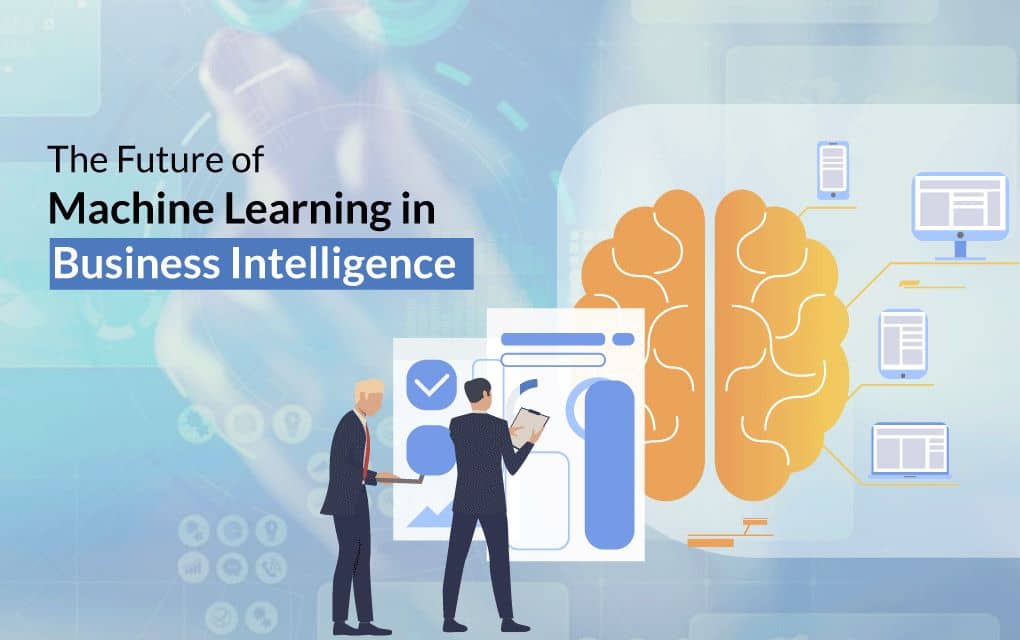Vipul Sharma,8th May
Table of Contents
Introduction:
In today’s world, data is considered as the most important valuable asset for any organization. With the amount of data generated each day, it has become essential to make sense of it to drive better business decisions.
Business Intelligence (BI) has emerged as a powerful tool for data analysis, but with the advancement of technology, there is always room for improving it. Machine learning, a subset of artificial intelligence, has the capacity to transform the way we use BI. In this blog, we will explore how machine learning can bring transformation in your BI experience.
1. Understanding Business Intelligence (BI):
Business Intelligence (BI) is a set of technologies and practices that help organizations collect, analyze, and interpret data. BI is used to get insights of business operations, identify trends, and make informed decisions. BI includes tools like data visualization, reporting, and analytics, which help users to analyze data and present it in a meaningful way.
2. What is Machine Learning?
Machine learning is a subset of artificial intelligence that enables machines to learn from data without being explicitly programmed. Machine learning algorithms analyze data, learn from it, and make predictions or decisions based on the patterns and trends found in the data. Machine learning is used in various applications like image recognition, speech recognition, and natural language processing.
3. How Machine Learning Can Transform BI Experience:
Machine learning has the potential to transform the way BI can be used. Here are some of the ways machine learning can enhance and elevate your experience in BI:
A. Improved Data Analysis:
Machine learning algorithms can analyze very large amounts of data quickly and accurately. Traditional BI tools are dependent on predefined rules and metrics, but machine learning algorithms can uncover insights and patterns that were previously unknown. Machine learning algorithms can identify outliers, correlations, and anomalies, making it easier for users to identify trends and patterns in the data.
B. Accurate Predictions:
Machine learning algorithms can analyze all the historical data and can make accurate predictions about upcoming future trends. Predictive analytics is an important aspect of BI, and machine learning can make it more accurate and efficient. Machine learning algorithms can analyze in detail large amounts of data quickly and make predictions based on the patterns and trends found in the data.
C. Enhanced Personalization:
Machine learning algorithms can analyze behavior of users and provide curated personalized recommendations. Personalization is important in BI because it helps users find the information they need quickly. Machine learning algorithms can analyze user’s behavior, such as search history and browsing behavior, and provide personalized recommendations based on that data.
D. Efficient Decision-Making:
Machine learning algorithms can bring automation in decision-making processes, making them more efficient and accurate. BI tools provide users with a vast amount of data, and decision-making can be time-consuming and challenging. Machine learning algorithms can analyze data quickly and make decisions based on predefined rules and metrics.
E. Better Customer Insights:
Machine learning algorithms can analyze customer data and provide insights into customer behavior. BI tools provide users with customer data, but machine learning algorithms can analyze that data and provide further insights into customer behavior. Machine learning algorithms can identify customer preferences, purchase patterns, and also predict customer churn.
The Future of Machine Learning in BI:
Machine learning very much has the potential to transform the BI industry in the future. With the large amount of data generated each day, it has become crucial to use machine learning algorithms to analyze that data. Machine learning algorithms can completely automate data analysis, improve predictive analytics, and even provide real-time insights about the data. As machine learning algorithms become more advanced, they will be able to analyze more complex data and provide more accurate insights.
One area where machine learning is already making a huge impact in BI is natural language processing (NLP). NLP makes it possible for machines to understand and interpret human language, making it easier for users to ask questions and get answers from their data. As NLP technology becomes more advanced, it will become easier for users to get the insights they need without having to rely on the metrics and rules defined on a prior basis.
Another area where machine learning is making a great impact is in data preparation. Machine learning algorithms can automate data preparation, making it easier for analyzing and observing the user’s data. By automating data preparation, users can focus on analyzing their data rather than spending time cleaning and preparing it.
Conclusion:
Machine learning has the potential to transform the way we are using BI. Machine learning algorithms can improve data analysis, provide accurate predictions, enhance personalization, enable efficient decision-making, and provide better customer insights. As machine learning technology becomes more advanced, it will become easier for users to get the insights they need from their data. In the future, we can expect machine learning to play an even more significant role in the BI industry, making it easier for users to make informed decisions based on their data.

